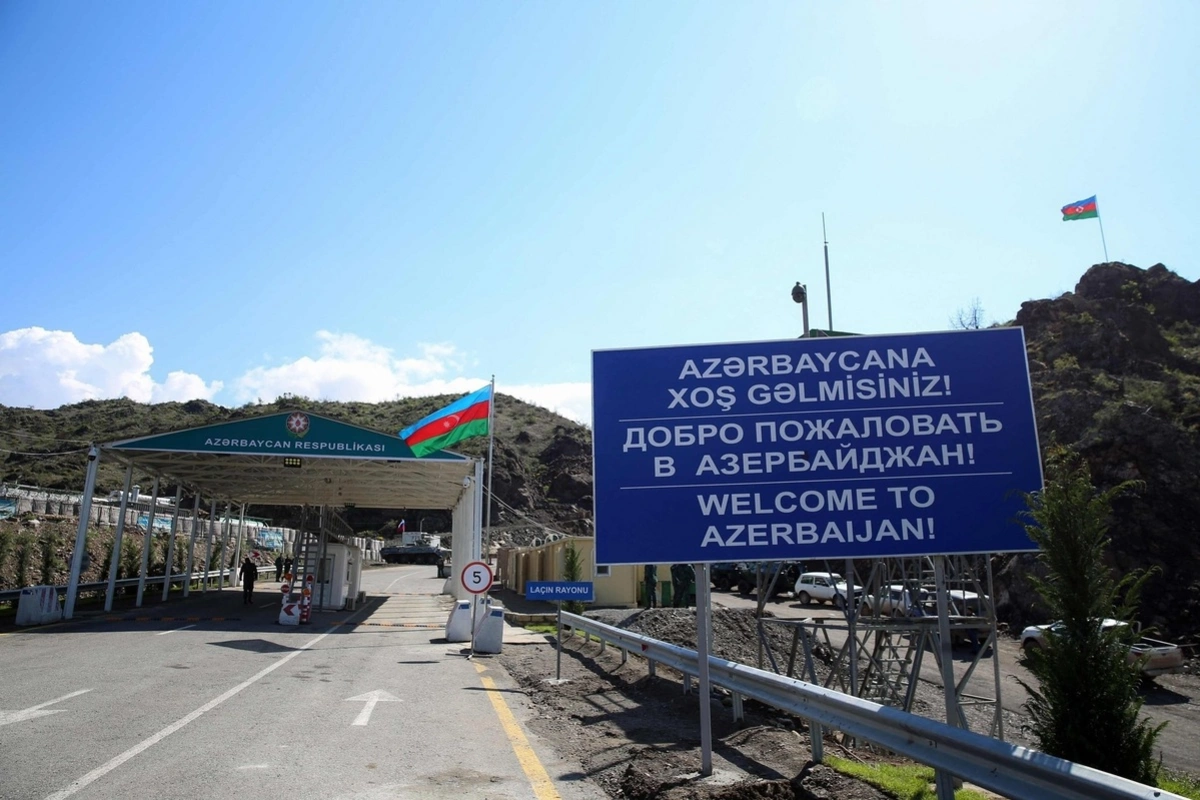
On 23/24 April 2023, just one year ago today, observers doubted the wisdom of Baku’s decision to install a checkpoint on the Lachin Road. Today, with the whole situation changed, Azerbaijan reflects on a crucial move in the long game of regaining full control over Karabakh.
Image: mfa.gov.az
What a difference a year makes. So much has changed in the last few months that it is hard to believe that it was just 12 months ago that Azerbaijan shocked observers by creating a border post on the Armenian border. It was set up to control the highway from Khankendi, known colloquially as the Lachin Road, even though it had been diverted so it no longer went via Lachin. That it had ever been considered controversial to create a border post on a country’s own frontier might seem odd as memory fades. However, the context at the time was that the safe passage along the Lachin Road/Corridor had been one of the pillars of the tripartite statement that brought the Second Karabakh War to a sudden halt in November 2020 being intended to “ensure the connection of Nagorno-Karabakh with Armenia.”
The general assumption had been that the Lachin Corridor—or the Road that replaced it in 2022—would allow Karabakh Armenians unfettered communication and trade with Armenia along that route. However, by mid-2022, Azerbaijan was becoming increasingly angered by what it saw as a flow of arms and illicit supplies to maintain what Baku characterized as an illegal military force in Khankendi (called Stepanakert by its then inhabitants). From December 2022, traffic on the Lachin Road had reduced to a trickle following what was called ‘ecological demonstrations’ that prevented most vehicles from going beyond Shusha. Nonetheless, installing the border post was another step in Baku’s determination to redirect supplies with growing demands that even aid convoys to Khankendi should use the route from Azerbaijan, not from Armenia. This was portrayed in Yerevan as Azerbaijan attempting to starve the Karabakh Armenians, whereas Azerbaijan insisted it was a way of ensuring a normalization of trade within a sovereign state.
A degree of international disapproval followed. Many commentators argued that Azerbaijan was breaking the tripartite agreement by not ensuring free movement on the Lachin Road. Baku argued on a technicality that the exact wording of the agreement demanded only that the “Republic of Azerbaijan guarantees the safety[1] of traffic along the Lachin corridor of citizens, vehicles, and goods in both directions.” The agreement did add that the corridor would remain “under the control of the peacekeeping contingent of the Russian Federation,” so there was some question as to whether Moscow was, in fact, failing to live up to its side of the bargain. However, some Azerbaijanis argued that the border post, being at the end of the corridor, was exempt from Russian oversight.
In retrospect, these considerations are now minor historical footnotes since, in September 2023, the whole situation changed radically: Azerbaijani forces regained control over the whole of Karabakh, and virtually all Karabakh Armenians opted to leave rather than see what life would be like under administration from Baku. However, for Azerbaijan, the anniversary is a chance to look back with satisfaction at one of several key manoeuvres that led to this new status quo.
Meanwhile, following the recent Azerbaijani-Armenian border agreement over the Qazakh Villages, chances are improving that the once controversial border post will sooner or later be a gateway for trade again once Baku and Yerevan iron out a full normalization of relations.
[1] our emphasis—highlighting the point that it was safety rather than uninteruptedness of traffic that was stated
Share on social media